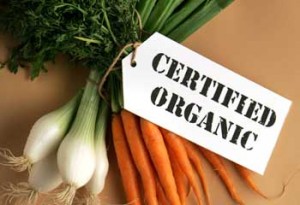Our roles as educators for OSU Extension are to provide research based information so that individuals can make informative choices for their health. At times, the positions we take are not always popular. Advocates for certain foods, diets, or health issues may be correct on their positions – however Extension positions need to be backed up with consensus of current scientific opinion and peer-reviewed research. Science can eventually support claims of certain advocacy groups. For example, it took some time to establish the consensus that cigarettes cause cancer.
Claim 1: High fructose corn syrup is bad for you.
What we know for now:
In 2004, a scientific study linked the rise in obesity rates to the rise in high fructose corn syrup usage. However since then, several published studies have concluded that high fructose corn syrup is not chemically much different than table sugar (sucrose) and is also not metabolized differently. Corn syrup contains 55% fructose and 45% glucose whereas table sugar contains 50% glucose and 50% sucrose. Both table sugar and corn syrup are empty calories but one is not necessarily unhealthier than the other. However, it is not to say that corn syrup didn’t contribute to the obesity for other reasons; it might have improved the profits and marketing power of sweetened beverages, for example.
Claim 2: Local fresh foods are healthier.
What we know for now:
Many factors influence the nutritional values of foods, especially fruits and vegetables. Time of harvest, storage and preservation techniques, and ways at which foods are consumed can all impact vitamin and mineral content, as well as bioavailability of nutrients. For example, according to OSU food science researchers, lycopene, a plant chemical thought to prevent certain cancers, is absorbed by the body more readily if tomatoes are cooked, or are consumed with some oil. Additionally, an Ohio grown tomato might not necessarily be healthier as one grown in Michigan depending on when it is harvested, stored or how it is prepared and consumed. Personally, I think local foods taste better and are fresher. There is also research that supports the idea that buying local supports local economies.
Claim 3: Canned, frozen, and dried fruits and vegetables are less healthy than fresh.
What we know for now:
Although there is something to be said for the taste of locally grown, fresh produce, research suggests that preserved foods are not as unhealthy as you might think. A comprehensive, two-part review of the literature comparing fresh, frozen and canned fruits and vegetables, published in the Journal of the Science of Food and Agriculture in 2007, revealed that fresh produce loses more nutrients during storage and cooking. Because of that, canned or frozen products often contain as many or more nutrients than the fresh produce you might find at the grocery store. According to the Food and Drug Administration’s Center for Food Safety and Nutrition, fresh fruits and vegetables could lose nearly half of their vitamins within a few days if not chilled or preserved properly. Even when produce is kept refrigerated, vitamin content can deteriorate over one to two weeks. Bottom line is to get your fruits and vegetables any way you can!
Claim 4: Organic produce is healthier.
Although research supports the notion that organic food is friendlier to the environment, it currently does not necessarily support claims that organic food is healthier. The USDA, which has an organic certification program, does not claim that organic foods are any healthier than non-organic. Also, according to a consumer based article on Mayoclinic.com, most researchers agree that residual pesticides on non-organic foods pose a very small health risk.
When looking for information on health and nutrition, be sure to check your source of information. Government, and university sources of information generally use peer-reviewed research as a foundation for articles and websites.
Written By:
Dan Remley, MSPH, PhD
Field Specialist, Food Nutrition and Wellness
Ohio State University Extension, Family and Consumer Sciences
remley.4@osu.edu
Reviewed By:
Bridgette Kidd, MPH, RD
Program Specialist, Healthy People
Ohio State University Extension, Family and Consumer Sciences
Sources:
Increases in plasma lycopene concentration after consumption of tomatoes cooked with olive oil. Fielding JM, Rowley KG, Cooper P, O’ Dea K. School of Nutrition and Public Health, Deakin University, Malvern, Victoria, Australia.
Organic foods: Are they safer? More nutritious? Accessed on December 31 2008 from www.mayoclinic.com
Chow Line: High-fructose corn syrup just like sugar. Accessed on December 31, 2008 on www.extension.osu.edu
Chow Line: Canned fruits, vegetables stack up well. Accessed on December 31, 2008 on www.extension.osu.edu





